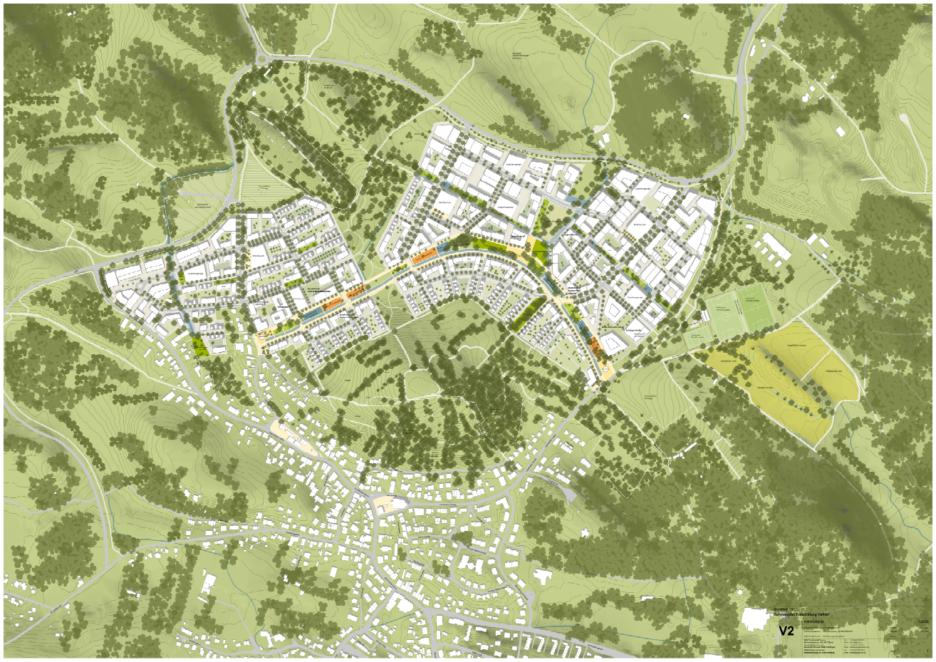Hafner_KliEn
Back to project overviewProject description
Under the title "Heimat Hafner", the city of Constance is developing a new district with 3,200 residential units, with services and commerce and a new mobility infrastructure. This new Hafner district is to be realized with a forward-looking energy infrastructure as a climate-neutral and energy-transforming district.
The aim of the "Hafner_KliEn" research project is to develop the energy-related planning basis for the further implementation of this urban development. The feasibility of a climate-neutral district is being demonstrated for the first time on this scale and in this thematic breadth.
The project is developing a conceptual approach that considers integral sector coupling and the entire life cycle of the buildings and infrastructure. The focus is on an energy supply system that allows a high level of use of both local and supra-regional surplus electricity from renewable energies. The solarization of all buildings, 4th generation heating networks and the development of an infrastructure for green hydrogen are elements of efficient energy use and the coupling of all consumption sectors and technologies (green H2 for public transport; shipping, industry). This creates added value beyond the neighborhood.
In addition to the technical concepts, the project addresses the key success factors of user satisfaction and acceptance with the corresponding models for sustainable building and living. In order to make the best possible use of the findings, stakeholders who themselves want to take "the next step" towards climate-neutral neighborhood development and the implementation of the energy transition in Germany are specifically addressed.
An interdisciplinary consortium of research institutions and local partners, including the University of Applied Sciences and the University of Constance, Stadtwerke Konstanz, siz energieplus and the City of Constance as the initiator of the "Heimat Hafner" urban development project, are working towards this goal.
The research results are intended to provide the necessary information basis with regard to technology, economic efficiency and the implementation process and to prepare for successful realization through suitable communication measures and knowledge dissemination. This is a forward-looking project with a model character, in which the holistic urban development process is consistently aligned with the central themes of sustainability.
- Ecology: Conservation of resources, climate protection, renewable energy supply in all sectors
- Economy: cost-efficient planning and construction, sustainable business models in operation
- Social: acceptance of new technology applications, user satisfaction
The Hafner district will include all urban functions - housing, services, commerce, infrastructure and mobility - and will be developed in line with the aforementioned key themes. For the first time in Germany, the feasibility of the aforementioned objectives will be demonstrated in a district of this size. The research project aims to develop transferable concepts and action-oriented conclusions.
In order to meet the objectives, an integral conceptual approach is to be developed at the urban planning level, which considers the entire life cycle of the buildings and infrastructure as well as the operating phase in an overall systemic context. Due to the research subject of "buildings and districts", the thematic focuses are spread across several fields of technology.
- City of Constance
- University of Applied Sciences Konstanz (HTWG)
- University of Constance
- Constance public utilities
AB1: Development of basic principles
AB2: Building in a climate-neutral neighborhood
AB3: Mobility
AB4: Energy supply concept
AB5: Process development
AB6: Public relations and public participation

